Tom Odell on the lesson he learnt from Billie Eilish and Finneas
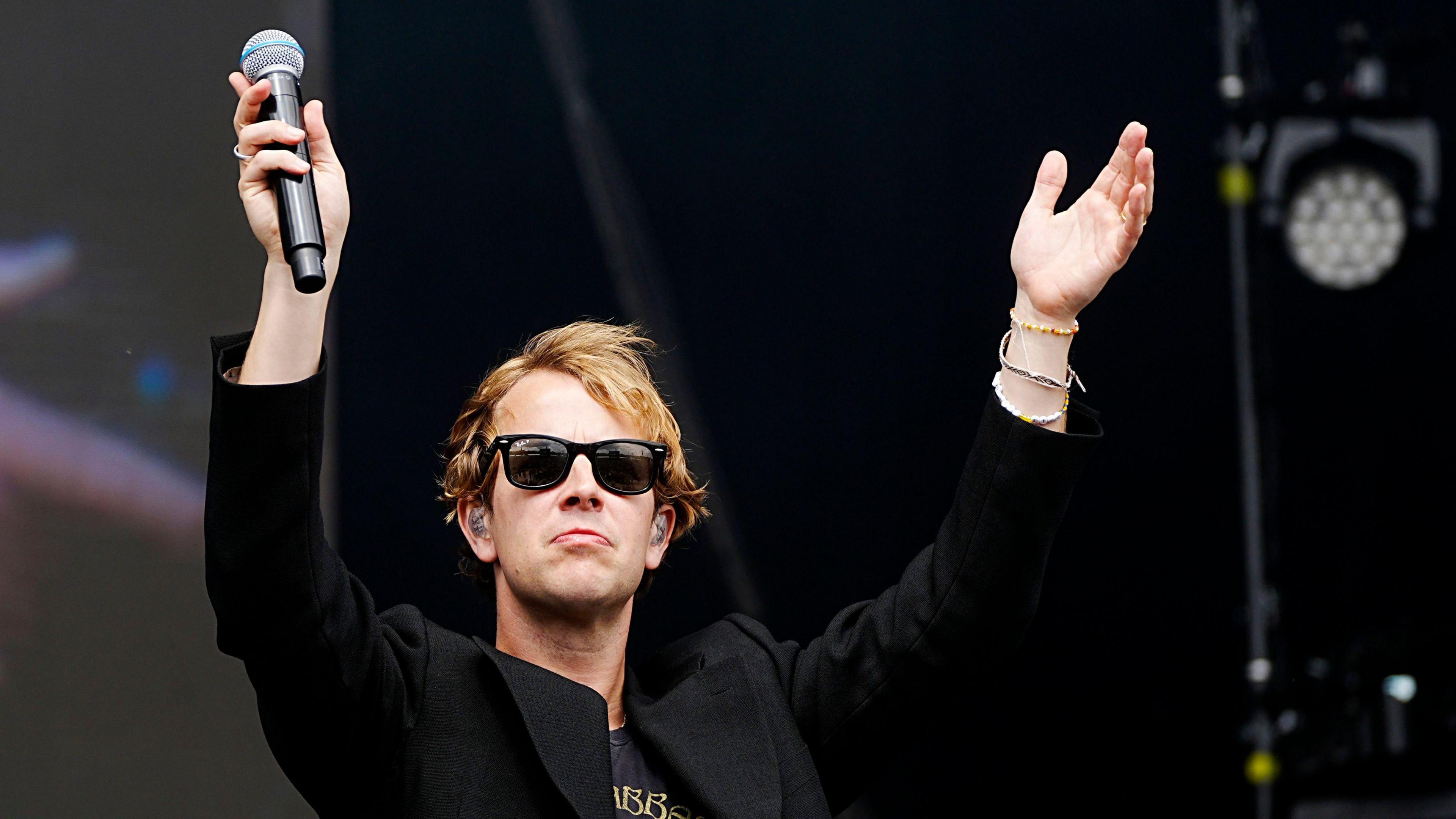
Tom Odell's Another Love is one of the most-streamed songs of all time, and is regularly used on TikTok to soundtrack anti-government protests in Iran
- Published
Even the best performers have bad days. And when Tom Odell played the Hollywood Forever Cemetery in 2016, he wrote the gig off as a dud.
"I was really dissatisfied with that show," he recalls. "I was frustrated, and I don't think it went how I wanted it to go. I don't even think it was a full crowd."
But in the audience that night was an 18-year-old musician called Finneas O'Connell and his younger sister, Billie Eilish.
A few months earlier, they'd uploaded a demo song to Soundcloud. Something about Odell's performance changed the trajectory of their lives.
"I was already a fan," said O'Connell, "but I watched the show he put on, and his band were incredible and his songs were incredible.
"I credit that show as being the reason I wanted to start putting out music under my own name."
O'Connell made those comments on stage in Manchester this April, external as he played his first UK solo tour.
Odell, who was in the audience that night, was dumbfounded.
"It was really moving for me, because my career has not always been easy," he says.
"But also, it was a wonderful lesson. We write off days where we feel like we have nothing to offer - but you never know what effect you might have on people."
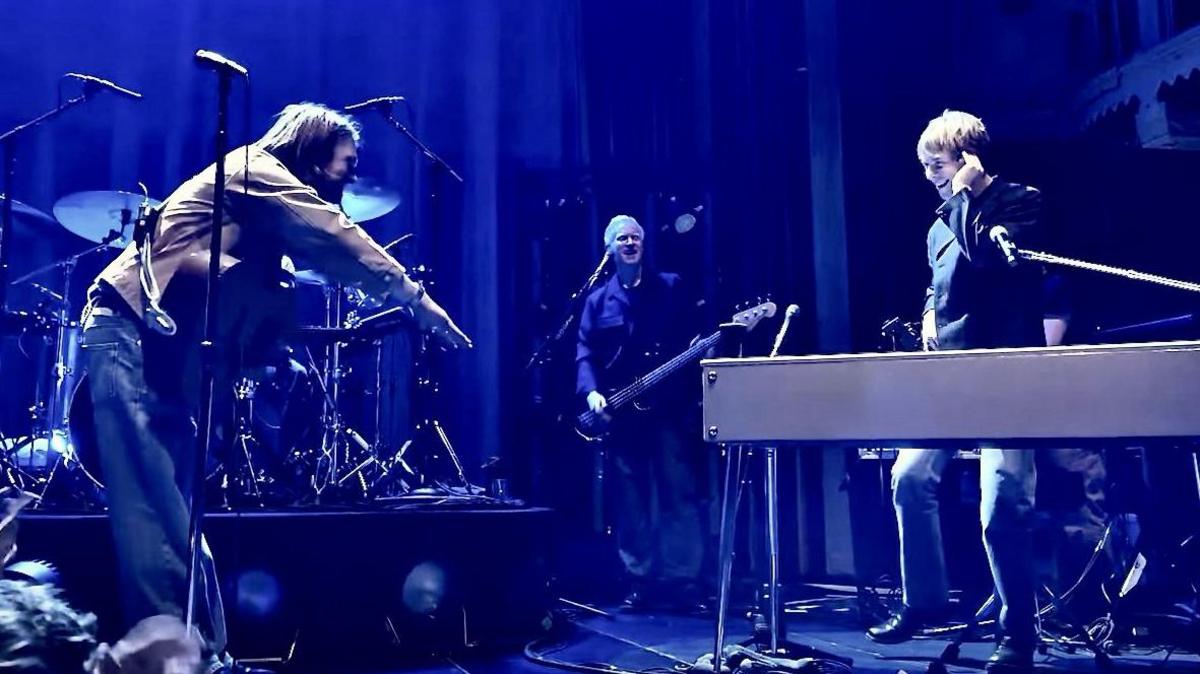
Finneas (left) and Tom later duetted on a live version of Another Love in Amsterdam
Eilish and O'Connell never forgot the debt. Earlier this summer, Eilish asked Odell to open up the European dates of her world tour with the promise of future collaborations
It coincides with a new, and long-awaited, peak in the musician's career.
After being discovered by Lily Allen, the Chichester-born musician had massive success with his first album, thanks to the heart-rending ballad Another Love – which became one of the most-streamed songs of all time, with more than three billion plays on Spotify alone.
But that was followed by a long stretch in limbo, with albums and tours that were devoured by hardcore fans, without crossing over to the mainstream.
In 2021, he fulfilled his contract with Sony Music and went independent – a process he has called "liberating", external after years of "struggling to put out the music I wanted to put out".
His new material was darker and more confessional. And after finding a new audience on TikTok, the title track to his sixth album, Black Friday, became a global hit – racking up 700 million streams last year.
Just like that gig in Hollywood, Odell underestimated how people would react to the song's uncomfortably stark lyrics.
"It wasn't even supposed to be the first single," he laughs, "but in the wonderful world of TikTok, there was a bit of it that really caught people's attention."
The line he's talking about – "I want a better body, I want better skin / I wanna be perfect like all your other friends" – later found its way into the teen drama Heartstopper, soundtracking an emotional scene where one of the main characters is admitted to an eating disorder clinic.
Odell says the reaction was overwhelming.
"When I wrote that song, I was really, really miserable," he says. "I'm a vulnerable person and it's hard to be alive sometimes.
"Then fast forward to a year later, and I'm singing that song on stage and all these people are singing back these words and going, 'We feel the same way'.
"It's the most connected I've ever felt to an audience."
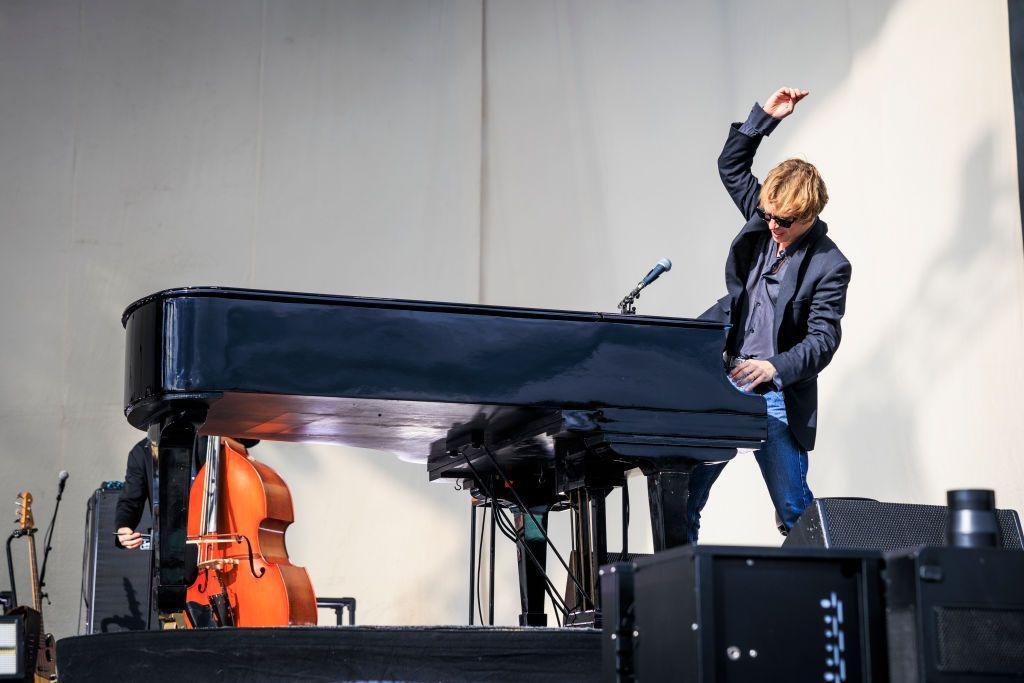
The star's dynamic and propulsive live shows have been a highlight of the summer festival season.
The success of Black Friday gave Odell a new freedom when it came to making his new album, A Wonderful Life.
The previous record was made in his tiny, private London studio (you can even hear the creaky pedals of his piano on Nothing Hurts Like Love).
This time, he hired Studio One of RAK Studios – where The Pogues laid down Fairytale of New York and Radiohead wrote High And Dry.
"I haven't been able to afford to make a record like that for the last 10 years," he says.
"But Black Friday made some money so it was a nice moment of being independent, having success, and then being able to carve out time out to record live."
To keep the sessions spontaneous, he didn't finish any of the "16 or 17" songs he'd written, preferring to thrash out the arrangements in the studio with his touring band.
It's an approach that gives the songs a weighty, lived-in quality.
Odell's voice, which tends towards the tremulous, thrums with emotional resonance, gently underscored by brushed drums and swelling strings.
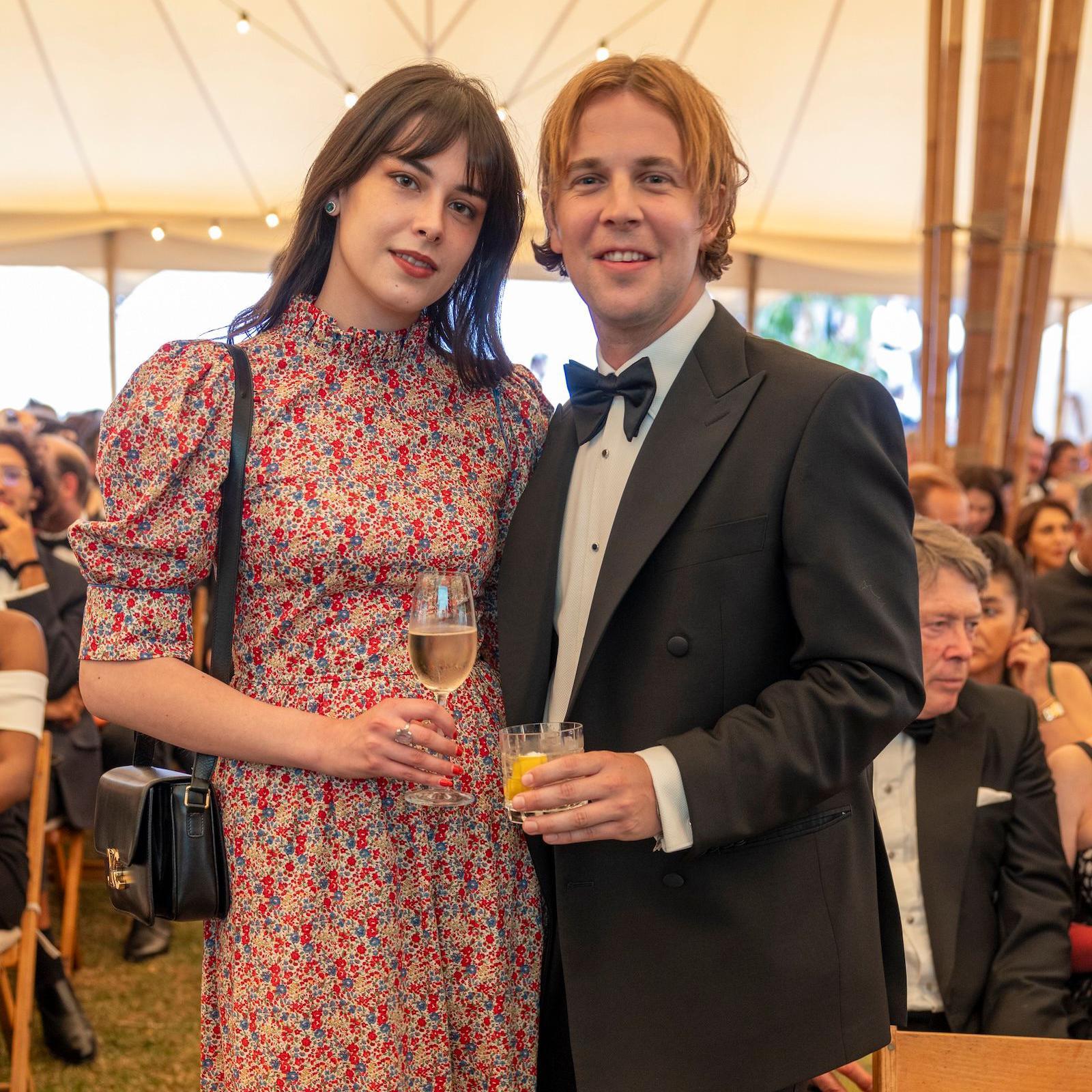
The musician married sculptor Georgie Somerville in 2023, after proposing on the same park bench where they'd met for their first date
But if you thought his lyrical outlook might have brightened thanks to a mid-career resurgence, or his November 2023 marriage to sculptor Georgina Somerville, external, you thought wrong: A Wonderful Life is an album rife with uncertainty.
Several of the song titles are questions (Can We Just Go Home Now? or Why Do I Always Want The Things That I Can't Have?) and Odell frequently undercuts romance with images of death or decay.
Odell says the music is the "truest reflection" of his state of mind between January and October last year.
Personally and professionally, he was on top of the world. It's just that the world was in a parlous state.
"We're living through such a period of global political uncertainty," he says. "It feels like an epochal moment, and it also feels extraordinarily terrifying."
A compulsive diarist, Odell observed that his "anguish" about the news was affecting his day-to-day relationships. But, he maintains, that's the logical mindset.
"Is it, in fact, unhealthy and desensitising and numbing to feel joy when we're surrounded by so much suffering?" he asks.
"And how much joy is okay before you have to go back to giving a damn?"
The album offers no solutions, only observations.
"There's a tension that's resolved when you start answering things, and the best songs for me are those that leave you with more questions," he says.
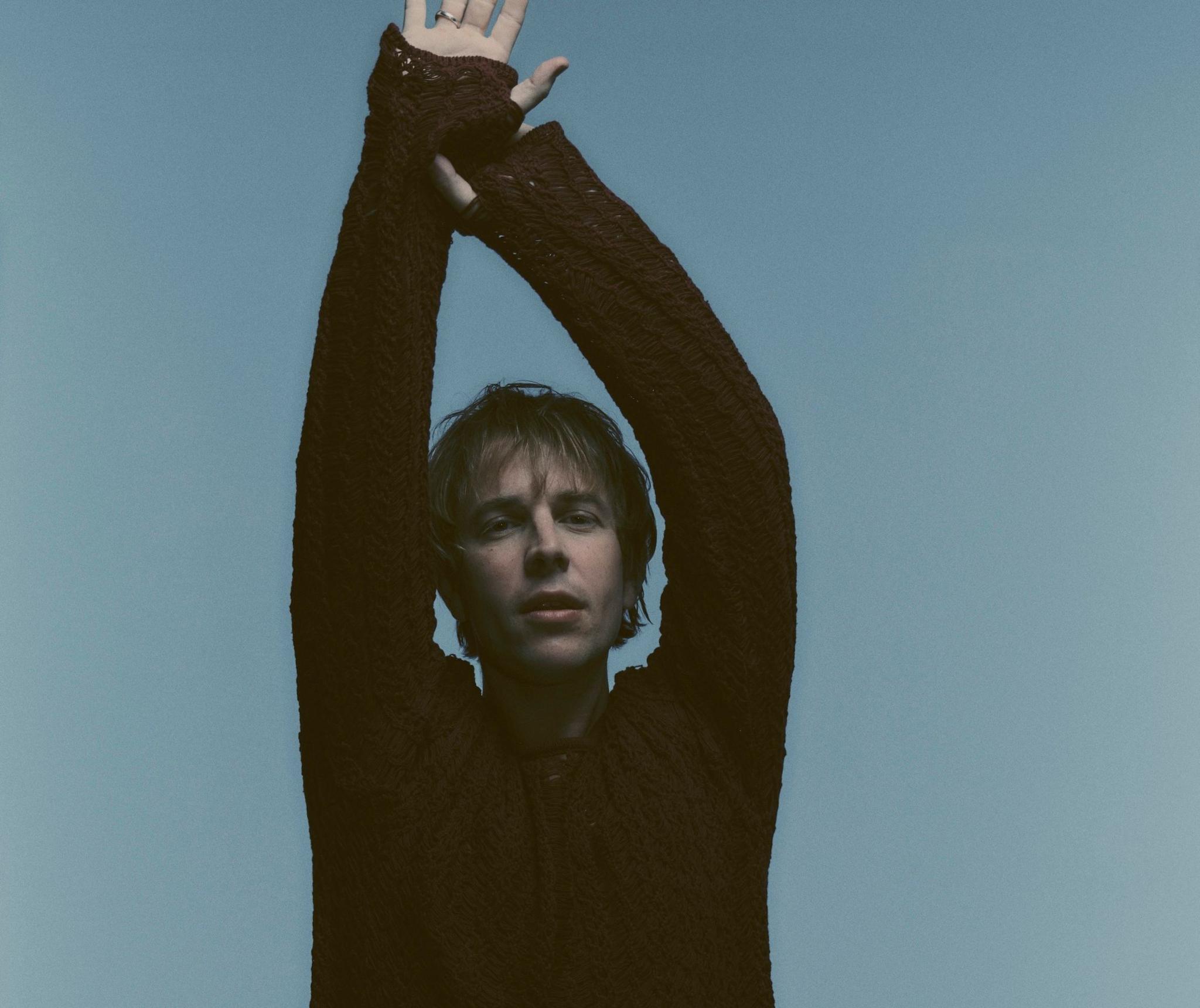
The singer embarks on his first headline arena tour of the UK this autumn
Even so, the final track, The End Of Suffering, finds a sort of equilibrium – as the singer throws open the curtains and lets the sun warm his skin.
It was inspired, Odell says, by Leonard Cohen's The Goal.
Written in the final weeks of Cohen's life, at a time when his long-term depression had suddenly lifted, it ends with a serene, almost mystical observation on man's capacity to fix the world: "Nowhere to go, nothing to teach / Except that the goal falls short of the reach."
"As he reached the finishing line of this life, he was saying that the [human] mind can't solve all the problems we face," says Odell.
"And more and more, I feel let down by thought. I find that this idea of the individual is so dissatisfying.
"I find myself most at peace, most content, when I'm in an ensemble making music, or talking to somebody and the conversation is flowing."
The conclusion, he says, is that when he lets go of anxiety and lives in the moment, life becomes immeasurably better.
"All through my 20s, I was constantly running towards this goal, you know, 'one day I'll feel artistically satisfied', and you begin to realise that it doesn't exist," he says.
"It's actually in each day. The destination is there. You have arrived, it's right there."